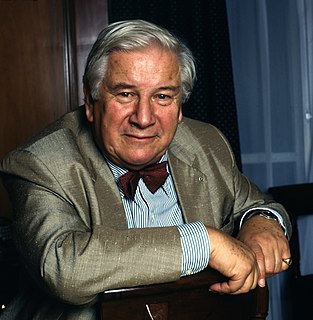A Quote by Timothy Keller
When you forgive, that means you absorb the loss and the debt. You bear it yourself. All forgiveness, then, is costly.
Related Quotes
As you consider your own life, are there things that you need to change? Have you made mistakes that still need to be corrected? If you are suffering from feelings of guilt or remorse, bitterness or anger, or loss of faith, I invite you to seek relief. Repent and forsake your sins. Then, in prayer, ask God for forgiveness. Seek forgiveness from those you have wronged. Forgive those who have wronged you. Forgive yourself.
You must forgive everyone. Now many would say that "We cannot forgive, it's very difficult." But it's a myth whether you forgive or don't forgive. What do you do? You don't do anything. But when you don't forgive, then you are playing into wrong hands. That means you are torturing yourself, while those who have troubled you are quite happy.
Forgiveness does not mean that we suppress anger; forgiveness means that we have asked for a miracle: the ability to see through mistakes that someone has made to the truth that lies in all of our hearts. Forgiveness is not always easy. At times, it feels more painful than the wound we suffered, to forgive the one that inflicted it. And yet, there is no peace without forgiveness. Attack thoughts towards others are attack thoughts towards ourselves. The first step in forgiveness is the willingness to forgive.
The Bible is clear about two principles: (1) We always need to forgive, but (2) we don’t always achieve reconciliation. Forgiveness is something that we do in our hearts; we release someone from a debt that they owe us. We write off the person’s debt, and she no longer owes us. We no longer condemn her. She is clean. Only one party is needed for forgiveness: me. The person who owes me a debt does not have to ask my forgiveness. It is a work of grace in my heart.
Forgiveness is the key to breaking the cycle of karma and reincarnation. Forgiveness doesn't mean: "What you did was okay." It simply means, "I'm no longer willing to carry the heavy toxic burdens of anger, resentment, and victimhood in my soul." You can work on healing, uplifting, and changing situations from a place of forgiveness, instead of from a place of resentment. Forgive yourself and everyone, and you are free!
Forgiveness is not a moral issue.
It is an energy dynamic...
Forgiveness means that you do not carry the baggage of an experience.
When you choose not to forgive,
the experience that you do not forgive sticks with you.
When you choose not to forgive,
it is like agreeing to wear dark, gruesome sunglasses that distort everything,
and it is you who are forced every day
to look at life through those contaminated lenses
because you have chosen to keep them.
Do we refuse to forgive? God, too, will refuse to forgive us. As we treat our neighbors, so also does God treat us. The forgiveness or unforgiveness of your sins, then, and hence also your salvation or destruction, depend on you yourself. For without forgiveness of sins there is no salvation. You can see for yourself how serious it is.
Forgiveness means that I continually am willing to forgive the other person for not being God — for not fulfilling all my needs. I, too, must ask forgiveness for not being able to fulfill other people's needs. … The interesting thing is that when you can forgive people for not being God, then you can celebrate that they are a reflection of God.
Forgiveness is an act of creation. You can choose from many ways to do it. You can forgive for now, forgive till then, forgive till the next time, forgive but give no more chances it’s a whole new game if there is another incident. You can give one more chance, give several more chances, give many chances, give chances only if. You can forgive part, all, or half of the offense. You can devise a blanket of forgiveness. You decide

































